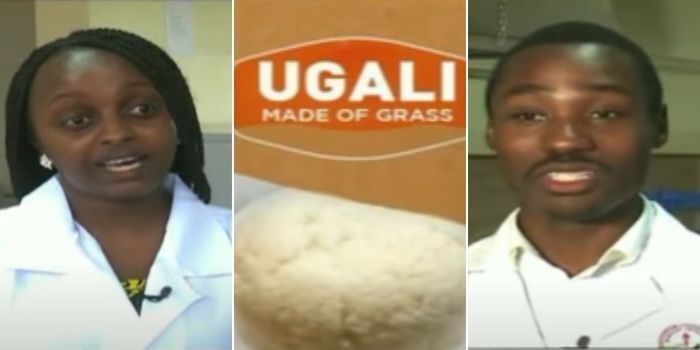A group of innovative students from Kabarak University has developed a groundbreaking solution to combat food insecurity in Kenya.
Led by Faith Wandia, a Master’s Degree student in Business Administration, the team has successfully created ugali flour from grass. This unique innovation could potentially revolutionize food production, especially in areas affected by drought.
The idea came to Wandia in response to the ongoing hunger crisis in the country, where many are struggling to access affordable food. She aimed to convert cellulose, a food component found in grass, into edible starch that could be used to make staple foods like ugali.
In 2020, Wandia assembled a talented team to bring her vision to life, including Innocent Bahati (Clinical Medicine), Salome Njeri (Economics), and Edgar Ruto (Computer Science).
The team opted for grass as their raw material due to its abundance and affordability. They use Bermuda and Ryegrass, which are readily available and mature within two to three months.
The harvested grass is dried and crushed into a powder, but as Bahati explained, a scientific process is required to make it edible.
Since humans cannot digest cellulose naturally, the team adds water and enzymes to convert cellulose into amylose, a starch similar to that found in maize.
After this process, the powder loses its green color and takes on a white appearance, with a texture and smell that resemble maize flour.
To ensure the product is safe and effective, the team runs an iodine test to confirm the presence of starch.
Once approved for commercialisation, the grass-based ugali flour will retail at an affordable price of Ksh 35 per kilo, with production costs standing at Ksh 23 per kilo.
This price point could make it a viable alternative for families affected by rising food prices.
The team has already filed a patent for their invention through the Kenya Industrial Property Institute.
However, they are awaiting approval from medical experts and the Kenya Bureau of Standards (KEBS) before the product can be made available to the public.

